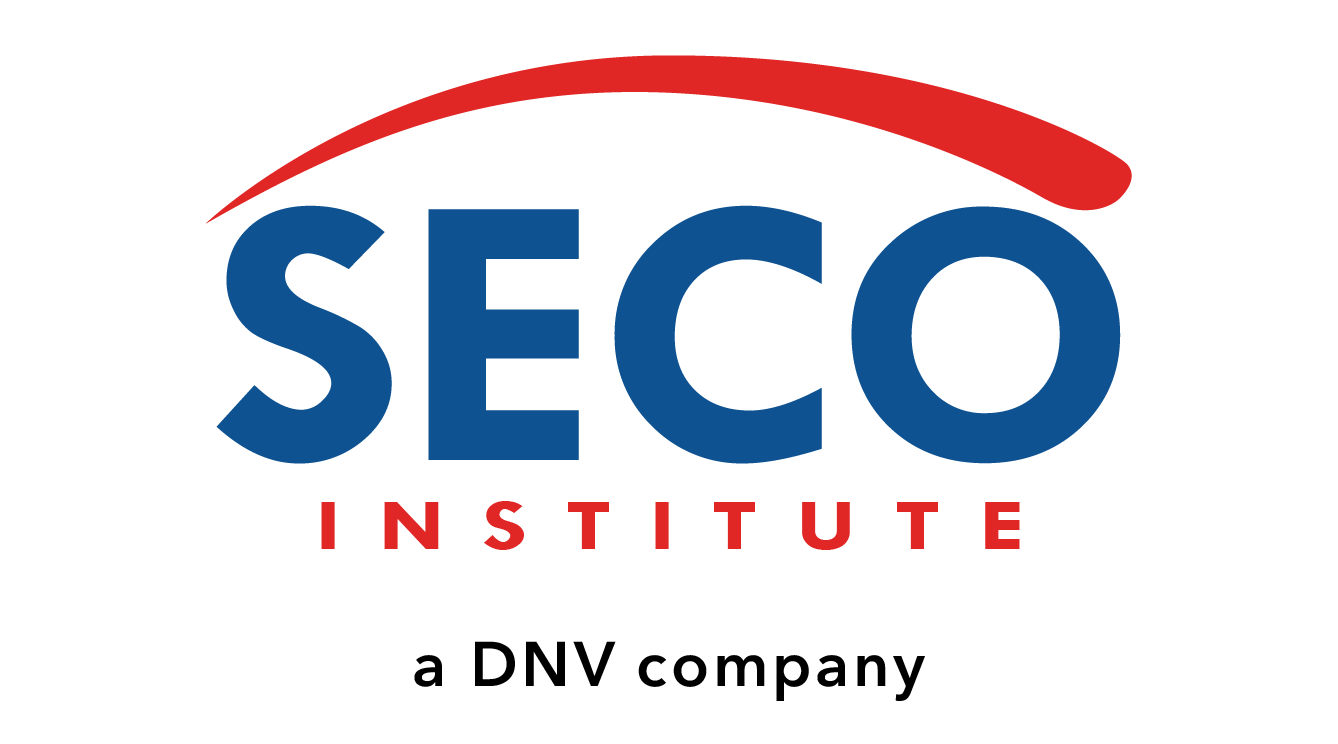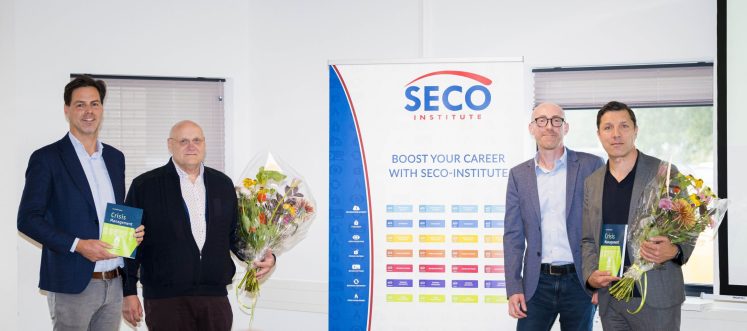SECO-Institute launches Crisis Management – The foundation for managing a crisis.
Practical guide for crisis professionals
Whether it should be considered his “legacy” to the profession, he did not know – he had not thought about that yet. What is certain is that Lex Schampers wrote ‘Crisis Management – The foundation for managing a crisis’ out of the need for a practical handbook on crisis management, rooted in business administration principles. The book was presented on Wednesday, 17 September.

“Crisis management is top sport. Preparation is key, and you only get one chance to do it right. Discipline, reflection, and a plan are crucial,” said Thijs Jansen, Principal Consultant at the COT Institute for Safety and Crisis Management. As a strategic advisor, he was one of the guest speakers during the festive event
where the first copy of the book was presented. Several dozen invited guests had gathered at the headquarters of the North Holland North Safety Region in Alkmaar for the occasion.
Jansen emphasised the importance of thorough preparation. “It’s practice, practice, and more practice,” he said. This improves readiness and cooperation, provides clarity about mandates, helps continuously identify mistakes and vulnerabilities, and contributes to the development of a learning organisation.

Pioneering
He also stressed that crisis management is about pioneering, where “it’s not about the letter, but the spirit of the law.” How this works in practice was illustrated by guest speaker Krishna Taneja, Director of the
North Holland North Safety Region. Back in 2011, when he was the district police chief, Tristan van der Vlis shot and killed six people and wounded seventeen others in a shopping mall in Alphen aan den Rijn, before taking his own life. In the chaos immediately after the horrific events, Taneja had to make decisions that later led to a two-day interrogation by the Dutch Public Order and Safety Inspectorate. “Because I made decisions I should not have made, violating established protocols,” he said.
Crisis management is a profession in its own right, Taneja emphasised, adding that managing crises has become increasingly complex, especially because of the impact of social media and the growing complexity of crises themselves. On that point, he also highlighted the strength of civil society. “If you’re caught off guard by an incident and, as a government, you want to arrange everything yourself, you will be extremely busy. But if you make people responsible, they are capable of a great deal,” he said, referring to an example from 2024, when residents of Hoorn reinforced dikes themselves with sandbags during a flood threat.
Awareness
He praised the book written by Lex Schampers and published by SECO-Institute as “excellent,” also because training, practice, and preparation are becoming more important. Schampers, a business administrator and former crisis management advisor at ProRail, explained that he had mainly felt the book needed to be written “because it simply didn’t exist yet.” Especially in times when organisations are

increasingly confronted with unexpected situations, from cyberattacks to social unrest, from power outages to pandemics, effective crisis management is indispensable, he stressed.
“We are seeing growing awareness in this field. For instance, the Chamber of Commerce is paying more and more attention to it. Companies realise they can be hijacked by cybercriminals. Awareness is rising at a rapid pace. In that sense, this book really fits the times.”
Vincent Jentjens of the internationally operating SECO-Institute, where Schampers contributes as (co-)developer of training material and education programme, welcomed the book. “Lex wanted to create, drawing on his business administration background, a book that is practical, pragmatic, directly applicable, and easy to read. In my view, he has succeeded brilliantly. We are proud to offer this alongside our excellent training courses, and we will publish it worldwide.”
The book is now a standard part of the course material of the SECO-Institute courses on crisis management, and can also be purchased separately at the SECO-Institute webshop.

